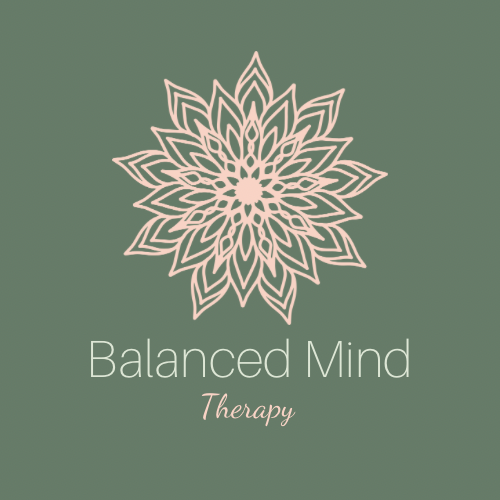How to Stop Blaming Yourself: 5 Ways to Regain Your Peace
POV from an Anxiety and EMDR Therapist San Jose
If you’re reading this, you might be tired of feeling drained by people and relationships. You may feel bad about yourself when things go wrong. Perhaps you realize that blaming yourself isn’t helping and you’re ready to learn how to stop blaming yourself. Or maybe you want to understand why you often feel like you’re failing or not good enough.
You regret not saying something different to avoid arguments.
You wish you had answered your boss better to reduce their frustration.
You feel you should have been more accommodating with someone else's schedule, otherwise it seems like you don’t care.
Blaming yourself is exhausting, and you might want to silence the inner voice that says you're not enough. I can help you identify the source of this self-blame and find ways to manage it. Let’s learn how to stop blaming yourself.
Key Takeaways
Self-blame often starts from how we see and experience others in relationships, especially when we are young.
It can also come from trauma or lack of emotional and physical support as children, affecting our adult relationships.
While self-blame may seem like a way to cope and feel in control, it usually causes anxiety and depression.
Understanding the causes and signs of self-blame is the first step to healing and learning to stop blaming yourself.
You control the story you tell yourself. If you need help healing past wounds and creating positive beliefs to overcome self-blame, EMDR therapy can help.
Signs of Self Blame
If you often blame yourself, it may be hard to see the signs. These behaviors might feel normal, even if they are uncomfortable. Noticing the signs of self-blame is the first step to changing them. Have you recognized any of these signs in yourself?
Perfectionism
People pleasing
Avoiding conflict
Low self esteem
Self-sabotaging
Over-responsibility in relationships
Over-apologizing
Rejecting compliments
Self criticism
Feeling guilty
Difficulty trusting others
If you feel self-blame, let’s discuss why. It can help to explore where these feelings originate.
5 Reasons You May Blame Yourself
You’ve experienced past difficulties in relationships.
You've felt ignored, unloved, and blamed for others' issues. Maybe your parents struggled with their emotions and unfairly blamed you. As a result, you learned to blame yourself to cope with your feelings.
As a child, you had overly critical and blaming parents.
As a kid, you likely felt too afraid to challenge your parents. So, you learned to take the blame to handle the situation and keep things calm.
Self blame can develop out of experiences with a parent who was emotionally neglectful.
If a parent is not there physically or emotionally, you might blame yourself for their absence. You may think it’s your fault they didn’t love you the way you needed. However, as a child, it’s not your responsibility to teach your parents how to love and support you.
Self-blame can be a way of coping with hard things you’ve been through.
And any type of coping mechanism is essentially an attempt to help you feel better and more at ease with your current situation or emotional state.
If you’ve experienced trauma, self blame can be a way of responding to the trauma to gain some control over it.
Controlling a situation, even in a negative way, can lessen fear and uncertainty. Anxiety grows when things are unpredictable. When we feel in control, we can try to fix problems or stop them from happening again. Habitual self-criticism and blame can cause depression and anxiety. These habits often happen automatically and are influenced by past hardships that resurface today. By identifying these patterns, we can start to change them, heal from past hurts, and live more confidently in the present.
How to Stop Blaming Yourself: 5 Tips
Focus on your locus of control.
Focus on what you can control and what you cannot. Often, harsh self-blame comes from factors beyond your control when you examine them closely.
Challenge and reframe the story you tell yourself.
The narrative you create in your mind is very powerful. If you want to change this story, EMDR therapy could help you heal old wounds, build new beliefs about yourself, and boost your self-esteem and self-worth.
Choose to see mistakes as growth and learning opportunities.
Sometimes we learn more from our failures than from our successes. It's important to choose self-compassion and to practice self-respect as we navigate life's challenges. Embracing our imperfections can lead to personal growth and deeper understanding.
Set boundaries for yourself.
Self-blame often arises from trying to please others at our own expense. Understand your values, identify boundaries that match them, and practice setting these boundaries while expressing your needs. This can help reduce self-blame.
Seek therapy to heal underlying low self esteem and low self confidence.
Constant self-criticism may indicate low self-esteem. If you find it hard to identify the reasons for these patterns, working with a trained EMDR therapist can help. You will explore the origins of these issues and work on healing the wounds that fuel your self-blame and criticism.
Final Thoughts About How to Stop Blaming Yourself…
Self-blame often arises from past relationship difficulties or trauma. It can damage your relationships, self-connection, self-respect, and confidence. Remember, you are more than your past. Here’s a recap on how to stop blaming yourself. Begin by noticing your behaviors and reactions that show self-blame. Reflect on their origins and learn to change the narrative you tell yourself. Set boundaries and concentrate on what you can control. If you need additional support in overcoming self-blame, consider reaching out to a trained EMDR therapist for help and healing you deserve. stand out
-Nicole Egan, LMFTMeet Nicole, a trained EMDR therapist specializing in healing trauma and anxiety
Learn more about how EMDR therapy can help you heal from trauma, anxiety and depression to find the more confident you!





